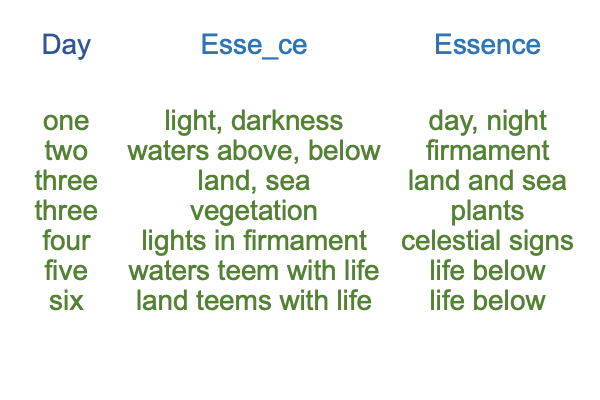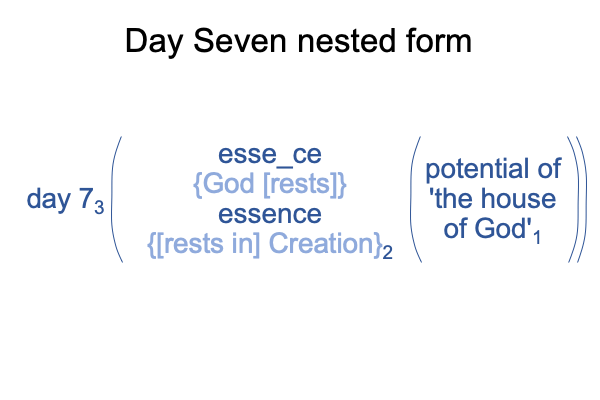0042 Proposition four asks, “Why don’t we refer to Genesis 1 as the seven days of creation?”
0043 An obvious reply is that the key terms, bara and asa, operate during the six days and detail a sequence of noumena.

0044 God rests on the seventh day. The word, “rest”, means “a state of order”. If our cosmos is a temple, then on the seventh day, God takes up residence in His house.
In six days, God’s house is built and on the seventh, God makes it His home.
0045 As I see it, Walton’s discussion brings Genesis 1 as close to natural philosophy as the text permits.
In terms of category-based nested forms, each day manifests as a normal context3 and a potential1.

0046 These can be combined into a category-based nested form.

0047 Day seven virtually situates the six pairs of esse_ce and essence.
The Creation Story’s hylomorphe for day seven is typical for the ancient Near East.

0048 Day seven is the day of rest. Day seven is the day that God resides in the order that He establishes.
Walton notes that the day of rest is not a day of leisure. Instead, the seventh day is when we put down our own work in order to attend to God’s sovereign work. After all, the world that we call, “home”, turns out to be the house of God.

